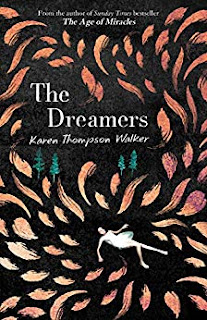Rating: 2/5
Review:
Disappointing
There are things I liked about Life, Death and Cellos, but overall I
found it disappointing.
I was looking
forward to this because classical music is a real interest of mine,
and I’m pleased to say that the book’s real strength is the
musical background. Isabel Rogers plainly knows a great deal about
the music and about playing the cello, all of which she brings to
life wonderfully – and I speak with all the authority of a
dreadfully bad teenage cellist who hasn’t touched the instrument
for many years. :o) I thoroughly enjoyed the passages dealing with
the structure of various pieces, the technicalities of playing the
cello, the workings and personalities of an orchestra and even the
background history of Stradivari instruments. Sadly, the other
aspects of the book didn’t work nearly so well for me.
Part of the problem
for me is that the book isn’t the “mystery” it is billed as;
it’s more sort of chick-lit-with-classical-music as we follow Erin,
a twenty-something amateur cellist, through her relationship
problems, her problems at work, discovering her talent as a
cellist...you get the idea. Frankly, the story felt pretty stale and
dull to me, it’s blindingly obvious where it’s heading from quite
early on and it plods from one unlikely but entirely predictable
event to the next as things fall inevitably into place. The dialogue
creaks rather and Rogers is forever explaining the meaning of
conversations rather than writing good enough dialogue simply to show
it convincingly. We get far too many points of view from slightly
thinly-painted characters (several of whom are wholly irrelevant and
are just a distraction), the humour is often pretty clunky and
there’s an awful lot of filler like this, as a character gets into
the back seat of a car:
“‘Shift forward
Erin,’ he said, as he tried to fit his knees into the car. ‘I
have real men’s legs. They are longer than you think.’
Erin obligingly slid
her seat forward and felt the car’s suspension dip as Charlie’s
weight fell in.”
It’s just a bloke
getting into a car, for heavens’ sake! Or a couple of pages of
wholly irrelevant faffing about not looking at a mobile phone
immediately before the sender of the crucial text walks in and
imparts the news anyway. Wading through a lot of this stuff became a
real trial.
So, despite the good
musical aspects, I can’t recommend Life, Death and Cellos. It may
be for others but it wasn’t for me.






